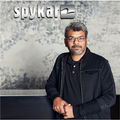Interviews
Outlook for developing Asia looks brighter - DDG Singh
19 Apr '10
3 min read
Deputy Director-General Harsha V. Singh, in opening the presentation of the Asian Development Bank's “Asian Development Outlook 2010” at the WTO headquarters on 16 April 2010, welcomed the projected rebound of the developing Asia this year and underlined the importance of open trade in world economic recovery.
Opening statement at the Asian Development Bank's
I am very happy to welcome the Asian Development Bank to the WTO for the Launch of the Asian Development Outlook 2010 in Geneva. A warm welcome to the ADB team, and to the other experts and participants of this event. This event is another example of the collaboration between our two institutions, which has increased significantly at all levels in recent times. We work towards similar objectives of sustainable development and increasing opportunities available to our Members.
The ADB team is presenting their annual flagship report in our House for the first time, and they bring good economic news with them. According to their report: “with global recovery now under way, the outlook for developing Asia looks brighter. GDP growth is forecasted to rebound to 7.5% in 2010, with every sub-region expected to perform better than last year.”
This is very important because today many count upon Asia to help the world economy recover from the recession. This interest in the Asian region is from both countries within and outside the region. The interest arise on account of the trade and investment links among countries, and the importance of international trade in the recovery period ahead. As the Outlook 2010 Report says that “the gradual recovery of international trade is as much a consequence as it is a driving force of the economic bounceback”.
A significant feature of this bounceback or recovery which has taken place after a historic decline in economic activity is the relatively short period within which the global economy achieved a turn-around in comparison to previous economic crises. A crucial ingredient for this exceptional positive development is the co-ordination and co-operation amongst nations to deal with the crisis. These efforts were facilitated immensely by the presence of co-operative multilateral institutions, including the WTO and the ADB. As WTO Director-General Pascal Lamy pointed out yesterday in his speech in Santiago, Chile, one main difference between the world economic crisis today and the one in the 1930s is that we now have the discipline of the trade rules within which WTO members operate. Thus, despite the crisis, trade routes have remained largely open for the past two years, contributing importantly to the recovery process.
The ADB Report being launched now is on “Macroeconomic Management Beyond the Crisis” (my emphasis). Almost by definition when we consider macroeconomic issues, we are looking at the broader or systemic level. Sometimes, lessons learnt in dealing with a systemic concern, for example macroeconomicmanagement, has implications for other systemic issues, such as the system of trade rules and opportunities provided by the international trade regime. A number of statements in the Report struck me as being significant in this context, and I want to share some of them with you. “A long-standing tradition of fiscal and monetary prudence served the region well during the crisis. ... In fiscal policy, while it is of paramount importance to safeguard sustainability with strong medium-term fiscal policy frameworks, a wide range of measures can contribute to more balanced growth by removing structural impediments to domestic demand. ... Multilateral cooperation is equally important to avoid bilateral conflicts over exchange rate and trade issues.”
Click here for more details.
Opening statement at the Asian Development Bank's
I am very happy to welcome the Asian Development Bank to the WTO for the Launch of the Asian Development Outlook 2010 in Geneva. A warm welcome to the ADB team, and to the other experts and participants of this event. This event is another example of the collaboration between our two institutions, which has increased significantly at all levels in recent times. We work towards similar objectives of sustainable development and increasing opportunities available to our Members.
The ADB team is presenting their annual flagship report in our House for the first time, and they bring good economic news with them. According to their report: “with global recovery now under way, the outlook for developing Asia looks brighter. GDP growth is forecasted to rebound to 7.5% in 2010, with every sub-region expected to perform better than last year.”
This is very important because today many count upon Asia to help the world economy recover from the recession. This interest in the Asian region is from both countries within and outside the region. The interest arise on account of the trade and investment links among countries, and the importance of international trade in the recovery period ahead. As the Outlook 2010 Report says that “the gradual recovery of international trade is as much a consequence as it is a driving force of the economic bounceback”.
A significant feature of this bounceback or recovery which has taken place after a historic decline in economic activity is the relatively short period within which the global economy achieved a turn-around in comparison to previous economic crises. A crucial ingredient for this exceptional positive development is the co-ordination and co-operation amongst nations to deal with the crisis. These efforts were facilitated immensely by the presence of co-operative multilateral institutions, including the WTO and the ADB. As WTO Director-General Pascal Lamy pointed out yesterday in his speech in Santiago, Chile, one main difference between the world economic crisis today and the one in the 1930s is that we now have the discipline of the trade rules within which WTO members operate. Thus, despite the crisis, trade routes have remained largely open for the past two years, contributing importantly to the recovery process.
The ADB Report being launched now is on “Macroeconomic Management Beyond the Crisis” (my emphasis). Almost by definition when we consider macroeconomic issues, we are looking at the broader or systemic level. Sometimes, lessons learnt in dealing with a systemic concern, for example macroeconomicmanagement, has implications for other systemic issues, such as the system of trade rules and opportunities provided by the international trade regime. A number of statements in the Report struck me as being significant in this context, and I want to share some of them with you. “A long-standing tradition of fiscal and monetary prudence served the region well during the crisis. ... In fiscal policy, while it is of paramount importance to safeguard sustainability with strong medium-term fiscal policy frameworks, a wide range of measures can contribute to more balanced growth by removing structural impediments to domestic demand. ... Multilateral cooperation is equally important to avoid bilateral conflicts over exchange rate and trade issues.”
Click here for more details.
World Trade Organization
Popular News
Leave your Comments
Editor’s Pick
































-Ltd..jpg?tr=w-120,h-60,c-at_max,cm-pad_resize,bg-ffffff)





.jpg?tr=w-120,h-60,c-at_max,cm-pad_resize,bg-ffffff)
.jpg?tr=w-120,h-60,c-at_max,cm-pad_resize,bg-ffffff)






